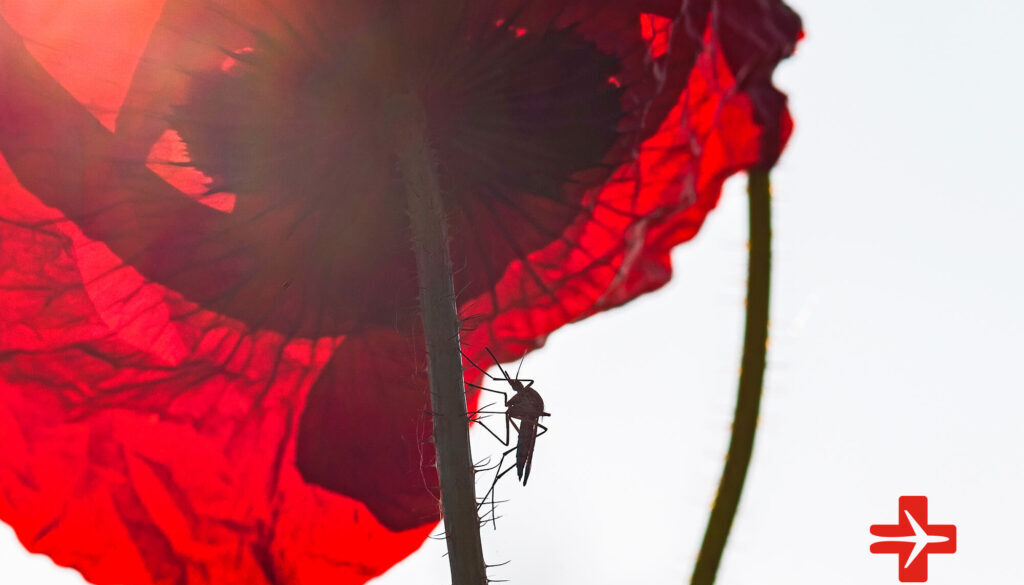Whatever Happened to Zika?
Zika became a very familiar word during the large outbreak of the virus in Brazil in 2015, when there were an estimated 440,000-1,300,000 people infected. The virus was frequently reported in the media as it spread throughout South America, Central America and the Caribbean and was linked to birth defects in infants born to women who were infected by the virus during pregnancy.
Zika was overshadowed in the media by the COVID-19 pandemic, so we never hear about it anymore and many people assume that Zika is now a thing of the past. Although the large outbreak is over, Zika is still a risk if travelling to many countries internationally. Here’s the latest on where the disease is present and the current recommendations about Zika and pregnancy.
The facts about Zika:
- Zika virus is spread through the bite of an infected mosquito. The virus can also be sexually transmitted.
- Zika virus can be passed from a pregnant woman to her fetus and can cause birth defects or miscarriage or still birth.
- Only 1 in 4 people develop symptoms of Zika when infected.
- Symptoms can include rash, fever, weakness, headache, muscle or joint pain and red eyes that usually lasts for up to a week.
- There is no treatment for Zika Virus and there is no vaccine.
Where did Zika come from?
Zika virus was first identified in Uganda in 1947. Before 2007 there were only sporadic cases in Africa and Asia. The first outbreak occurred in 2007 in Micronesia, followed by subsequent outbreaks in Southeast Asia and the Western Pacific. A large outbreak began in Brazil in 2015 which spread throughout South and Central America and the Caribbean. Since 2015 local transmission of Zika has been reported in 87 countries and territories.
Zika risk for travellers
The US Centre for Disease Control (CDC) provides an interactive map of countries with Zika transmission. It’s important to keep in mind that detection and reporting of cases and outbreaks may be delayed so countries without reported Zika cases but with the Aedes species of mosquitoes known to carry Zika could still potentially be a risk.
The risk for Zika in travellers has decreased significantly. In Canada, there has been an overall decrease of >95% of Zika cases in returning travellers from 2016 to 2018. The Public Health Agency of Canada estimates that the risk of a Canadian traveller being confirmed with zika infection is about <1 case per 200,000 trips. As most cases of Zika are not confirmed, this is likely an underestimate, but it supports that infection in travellers has become rare.
Preventing Zika
There is no vaccine available to prevent Zika. The best way to avoid Zika is to avoid being bitten by mosquitos and to prevent sexual transmission of the virus.
- Use insect repellent with 20% Icaridin or 30% DEET
- Cover up with clothing when mosquitoes are present
- Avoid conceiving for 3 months (males) 2 months (females) after travelling to a destination where there is an outbreak of Zika.
Pregnant travellers
Due to the risk of birth defects, pregnant women should avoid non-essential travel to areas with a current outbreak of Zika. Pregnant women should avoid unprotected sexual contact for the entire pregnancy with anyone who has travelled to a risk area or ensure to use condoms for the entire pregnancy due to the risk of sexual transmission of Zika.
The Public Health Agency of Canada (PHAC) no longer recommends that pregnant women or those planning to conceive avoid travelling to areas where Zika is a risk (only to outbreak areas). Instead, it is advised to discuss travel plans with a health care professional, and the choice may be made to avoid travel to these areas, depending on individual values and risk tolerance.
Planning a pregnancy
PHAC no longer recommends that all travellers wait a period of time before trying to conceive after returning from a Zika risk area. If you have travelled to a Zika risk area and do not have symptoms of Zika there is no need to delay pregnancy. Only those who have a confirmed Zika infection (or symptoms of Zika that have been discussed with a health care professional) are recommended to defer pregnancy. As per PHAC:
- Women should wait 2 months after travel or after onset of illness due to Zika (whichever is longer) before trying to conceive.
- Men should wait 3 months after travel or after onset of illness due to Zika (whichever is longer) before trying to conceive. The Zika virus can remain in the semen for a prolonged period of time.
Women concerned about exposure or who think they may have been infected, should see their doctor to discuss testing options.
Travellers departing for Zika destinations can enjoy their vacation. Know the facts about Zika and how to avoid contracting this disease. And remember: keep your insect repellent on hand at all times and use it!



